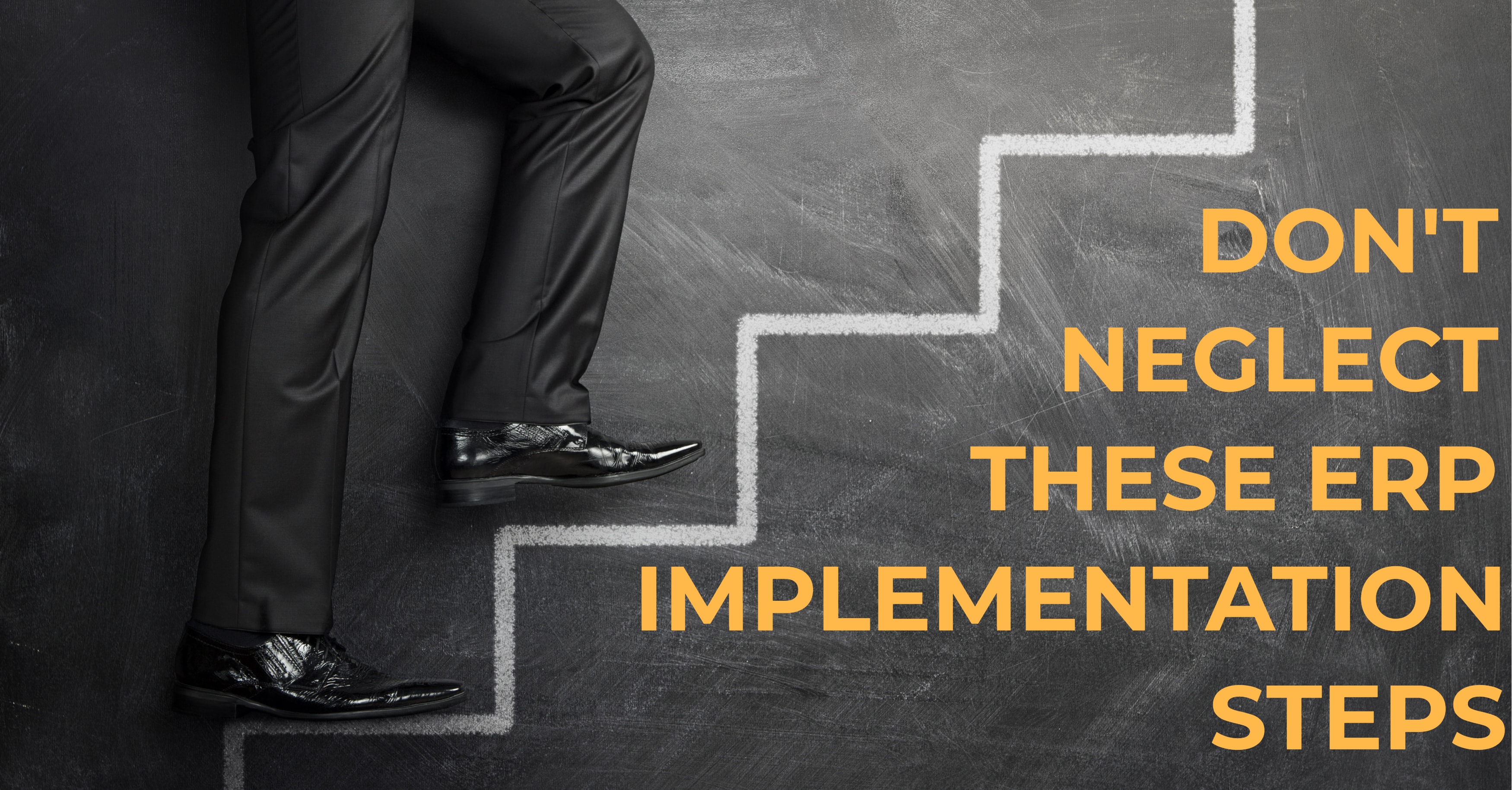Don’t Neglect These Critical Steps
No business wants to delay getting a return on their investment by drawing out their ERP software implementation. However, you can risk losing your investment altogether if you don’t take the time to follow best practices. You can’t cut corners on the road to software success.
After over 20 years of experience, our ERP consultants have noticed that the fate of a software project often rests on the execution of a few critical steps. Below, we explain what these steps are and why businesses can’t afford to leave them out during their ERP implementation.
1. Testing
Once project teams get closer to their go-live date, they’re itching to launch their software. That means some of the final steps often go to the waste-side or are rushed through. But this is a grave mistake, especially when it comes to ERP testing. If you have any bugs, you want to get those taken care of in test environments and sandboxes, not once the system goes live. Testing can help you avoid frustrating errors and downtime.
Make sure the members of the project team assigned with testing understand how to use test scripts. Don’t leave anything out during this process. Check that the new system will be able to handle your workload, execute the right workflows and reliably maintain data. Additionally, undergo a mock go live that mimics the exact conditions as the actual launch to fix any last-minute issues before the real thing. Sure, it’s a painstaking process, but thorough testing prevents you from experiencing delays and defects once your software is deployed.
2. Change Management
The step an organization is most likely to ignore—and regret ignoring—is change management. Panorama’s 2018 ERP Report revealed that change management is the biggest challenge during ERP projects. Furthermore, they identified it as one of the most important factors for implementation success. Quite frankly, just telling your workforce to use the new system won’t work. Full user adoption will require appropriate training and communication.
Start working on your change management strategy by putting someone in charge of this responsibility. This person isn’t doing all the work, however. People in the project team, executive board and supervisor or management positions will have to do their part to explain the benefits of the new ERP and track usage among employees.
Most importantly, conduct training sessions to ensure everyone understands how to bring unfamiliar tools into their daily routine. Training should be relevant to each user. In other words, don’t explain the ins and outs of the entire system to every individual. Provide resources and on-hand lessons applicable to specific departments.
3. Data Scrubbing
Data migration is the step often saved for the last minute of the project, resulting in a system that falls short in delivering business improvements. That’s because a successful data migration requires thorough data scrubbing. When you don’t clean your migrated data, you end up inputting errors into your ERP.
Before dumping all your data into a new solution, take a thorough look at this information. Is your data consistent? For example, are all phone numbers and addresses entered in the same format? Do you still have information on clients and employees who you haven’t been in contact with for years? Is any data duplicated or just plain wrong? Get rid of anything irrelevant or erroneous. Archive any data that isn’t immediately needed but could come in handy down the line.
Consider this meticulous process as a fresh start for your business. With clean data and new software, you can stop repeating old mistakes and increase your company’s accuracy and efficiency. Maintain high-level business performance by putting data management guidelines in place that keep information relevant and correct.
Wrap Up
We get it—words like “painstaking” and “meticulous” indicate that these processes aren’t quick and easy. But that’s only if your business conducts your ERP implementation alone. Consultants guide organizations through each step, adhering closely to best practices and keeping you on schedule to make your implementation hassle-free.
That’s especially true if you work with the ERP consultants at Datix. A certified Epicor partner, Datix has provided software solutions and services to manufacturers and distributors for over 20 years. We specialize in a variety of projects, including customizations and upgrades. Plus, our Unity integration application seamlessly connects Epicor with CRM, eCommerce or Marketing Automation software. Our consultants serve as a single touchpoint for all your software needs, doing whatever it takes to align systems with each client’s specific processes.
Steer clear of ERP failure by teaming up with experts. Make the first step to achieving implementation success—contact Datix today!
{{cta(‘770c1544-d87d-4acb-9fc4-7a25e1385094′,’justifycenter’)}}


